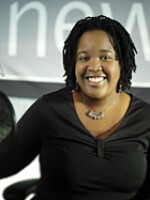New Orleans remains a shell of the city it was before Hurricane Katrina ravaged the Gulf Coast on Aug. 29, 2005, and the levees protecting the Crescent City failed. Whole neighborhoods remain uninhabitable, poisoned by toxic floodwaters and lacking even basic services.
Now newly re-elected Mayor Ray Nagin faces the Herculean task of rebuilding his city as another hurricane season approaches. And part of that challenge means facing the harsh truth about what the city was like before the flood.
In his scholarly, well-researched new book The Great Deluge, Douglas Brinkley describes a city ripe for disaster as Katrina approached shore -- crippled by poverty, police corruption, gang violence and lacking a real, workable disaster plan.
Brinkley, a Tulane University history professor, documents Katrina's landfall and the ensuing crisis with the precision of an eyewitness, because he was one. He was helping rescue people trapped by rising floodwaters, pen in hand, long before federal troops arrived.
Brinkley's research and interviews document failures at every level of government in responding to the crisis: Nagin's evacuation plan favored the rich and healthy; Louisiana Gov. Kathleen Blanco tended to small details when she should have shown leadership; Former FEMA chief Michael Brown seemed more interested in looking good for the cameras than expediting the federal response.
Copyright 2023 NPR. To see more, visit https://www.npr.org.




